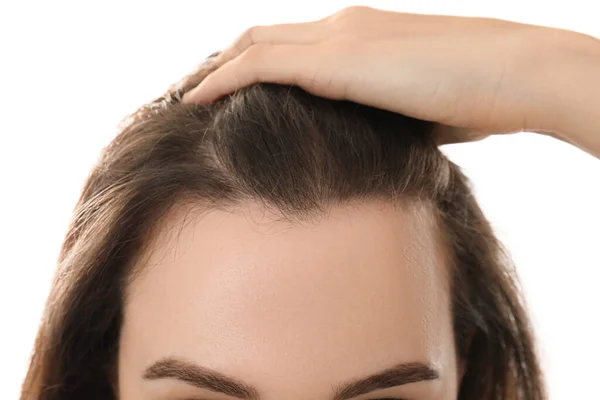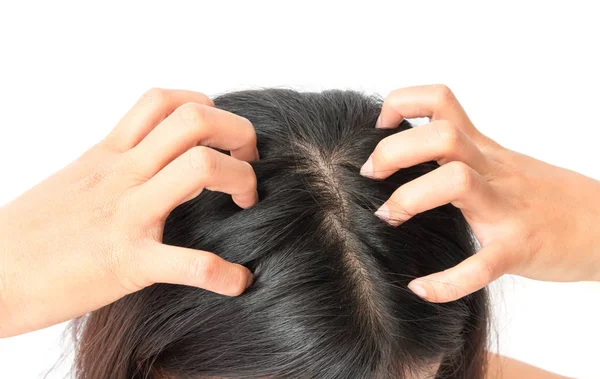
Are you longing for a thicker, bushier hairline that exudes confidence and vitality?
Whether dealing with thinning hair or just enhancing your natural locks, achieving a fuller hairline is a common desire for many.
Fortunately, there are steps you can take to promote hair growth and attain the thick, luscious hair you've always dreamed of.
In this guide, we'll explore effective strategies to help you achieve a thicker hairline.
Understanding Hairline Thickness:

Your hairline frames your face with elegance. It holds the power to redefine your entire look. Understanding its thickness involves unraveling the intricate dynamics of hair growth, genetics, and environmental factors that shape its density and volume.
1. Hair Follicles and Density:
- The density of hair follicles present in that area largely influences the hairline's thickness. Individuals with a higher density of follicles tend to have a thicker hairline.
- Genetics play a significant role in determining follicle density, with some people naturally predisposed to having a denser hairline than others.
2. Hair Texture and Diameter:
- The thickness of individual hair strands, known as hair diameter, also contributes to the hairline's overall appearance.
- Hair texture, whether straight, wavy, or curly, can influence how light reflects off the strands, affecting the perceived thickness of the hairline.
3. Hair Growth Cycles:
- Hair goes through three phases of growth: anagen (growth phase), catagen (transitional phase), and telogen (resting phase).
- The duration of each phase and the rate of hair growth can impact the thickness of the hairline. A shorter anagen phase or slower growth rate may result in thinner hair.
4. Hormonal Changes:

- Hormonal fluctuations, such as those experienced during puberty, pregnancy, or menopause, can affect hair thickness.
- Hormones like estrogen and testosterone play a role in regulating hair growth cycles and follicle health.
5. Age and Environmental Factors:
- As we age, the hairline may naturally thin due to factors such as hormonal changes, decreased blood circulation to the scalp, and environmental stressors.
- Exposure to sunlight, pollution, and harsh chemicals can also weaken hair follicles and contribute to thinning hair.
6. Scalp Health:

- The condition of the scalp directly impacts hair health and thickness.
-
Conditions like dandruff, psoriasis, or a buildup of sebum can obstruct hair follicles and impede growth.
Tips and Tricks for Thick Hairline
Achieving that enviable mane is within reach with the right tips and tricks. Let's explore some expert advice and actionable steps to help you transform thin, luster-lacking hair into a voluminous masterpiece.
1. Nourish Your Body from Within:
- A balanced diet rich in essential nutrients is the foundation of thick, healthy hair. Incorporate protein-rich foods such as lean meats, fish, eggs, and legumes to support hair growth.
- Ensure you're getting an adequate intake of vitamins and minerals, particularly vitamin A, vitamin E, biotin, and iron, which are crucial for hair health.
2. Hydrate, Hydrate, Hydrate:
- Proper hydration is essential for maintaining the moisture balance of your hair and scalp.
3. Gentle Hair Care Routine:

- Hair care routine is essential to prevent damage and breakage. Use a gentle shampoo and conditioner formulated for your hair type, and avoid overwashing, which can strip away natural oils.
- When washing your hair, use lukewarm water instead of hot water, as excessive heat can dry out the hair and scalp.
4. Scalp Massage:
- Stimulate blood circulation to the scalp with regular massages using your fingertips. This promotes nutrient delivery to the hair follicles, encouraging healthy hair growth.
- Incorporate a few drops of essential oils such as rosemary, peppermint, or lavender into your scalp massage for added nourishment and relaxation.
5. Protect Your Hair:
- Minimize heat styling and harsh chemical treatments, which can weaken the hair shaft and lead to breakage. When using heat styling tools, always use a heat protectant spray to shield your hair from damage.
- Wear a hat or use a UV-protectant spray when exposed to the sun for prolonged periods to prevent sun damage.
6. Trim Regularly:

- Regular trims help prevent split ends and breakage, keeping your hair looking healthy and voluminous. Aim to trim your hair every 6-8 weeks.
7. Choose the Right Hairstyles:
- Opt for hairstyles that add volume and texture to your hair, such as layers, waves, or curls. These styles create the illusion of thicker hair by adding dimension and movement.
- Consider incorporating hair accessories like volumizing mousse, texturizing sprays, or hair fibers to enhance the appearance of thickness.
8. Supplements and Treatments:
- Consult with a healthcare professional or dermatologist to determine if supplements such as biotin or collagen are suitable for you. These supplements can support hair growth and strengthen the hair shaft.
- Explore hair treatments such as deep conditioning masks to nourish and strengthen your hair from root to tip.
- Use the right hair growth oils like Amalgam hair oil. It is a light-weight pre-wash scalp treatment formulated to promote new hair growth, controls hair loss, leaving your hair looking fuller, thicker, and healthier in 90 - 120 days.
Can Thin Hair Become Thick Again in Females?
Now, let's address a common concern among women: can thin hair become thick again? The answer is a resounding yes, with the right care and treatment. By adopting a holistic approach to hair health, including a balanced diet rich in vitamins and minerals, regular scalp massages to stimulate blood flow, and incorporating strengthening treatments like hair masks, hair growth oil and serums into your routine, you can nourish your hair from root to tip and encourage thicker growth over time.
Conclusion
In conclusion, achieving a thicker hairline is not an impossible feat; it simply requires dedication, patience, and the right approach.
By understanding the factors that influence hair thickness, choosing the best products for your needs, and making lifestyle changes to support healthy hair growth, you can transform your locks and embrace the confidence that comes with a luscious, voluminous mane. So, say goodbye to thin, lackluster hair and hello to the thick, radiant strands you've always desired. Your journey to a thicker hairline starts now!
Most Frequently Asked Questions
Q1. How can I thicken my older women's hair?
A1. To thicken hair for older women, focus on nurturing the scalp and hair follicles with a holistic approach. Start with a balanced diet abundant in protein, vitamins, and minerals to bolster hair health from within.
Opt for hair growth products that are devoid of essential oils and enriched with exotic herbs such as sunflower seeds, squalane, moringa, hibiscus sabdariffa flower extract, fenugreek, and so on. These natural ingredients are known for their ability to fortify the hair shaft and foster thicker, healthier growth. Products containing biotin, collagen, and keratin can further enhance hair strength and density.
Incorporating gentle scalp massages can invigorate blood flow to the hair follicles, promoting growth. Lastly, steer clear of excessive heat styling and harsh chemical treatments, as they can damage the hair and contribute to thinning over time. Embracing these practices can help maintain and enhance hair thickness without essential oils.
Q2. How to increase hair density in females?
A2. Increasing hair density in females involves promoting a healthy scalp environment and nourishing the hair follicles. Opt for a nutrient-rich diet with plenty of protein, vitamins, and minerals to support hair growth. Incorporate scalp massages to stimulate blood circulation and encourage hair follicle activity. Excessive heat styling, as these can damage the hair and contribute to hair loss.
Q3. Which vitamin deficiency causes hair loss?
A3. Vitamin deficiencies, particularly deficiencies in vitamin D, vitamin B12, and iron, can contribute to hair loss. Vitamin D plays a crucial role in hair follicle cycling, while vitamin B12 is essential for red blood cell production, which delivers oxygen to the scalp and hair follicles. Iron deficiency can lead to anemia, causing hair to become thin and brittle. Ensuring adequate intake of these vitamins and minerals through diet or supplements can help prevent hair loss associated with deficiencies.
Q4. What foods should I avoid for hair loss?
A4. To reduce the risk of hair loss, avoid processed foods high in sugar and unhealthy fats, as they can contribute to inflammation and disrupt hormonal balance, potentially leading to hair thinning. Limit intake of sugary snacks, sodas, and fried foods, opting instead for whole foods rich in vitamins, minerals, and antioxidants. Additionally, minimize consumption of alcohol and caffeine, as excessive intake can dehydrate the body and affect nutrient absorption, impacting hair health.
Q5. Will my hair grow back if I stop eating sugar?
A5. Eliminating sugar from your diet can have positive effects on hair health, but whether your hair will grow back depends on various factors such as genetics, overall diet, and lifestyle habits. Excessive sugar consumption can contribute to inflammation and hormonal imbalances, which may lead to hair thinning or loss. By cutting out sugar and adopting a balanced diet rich in nutrients, you can create a healthier environment for hair growth. However, individual results may vary, and it's essential to address any underlying issues contributing to hair loss for optimal results.
Image Source: Depositphotos.com
